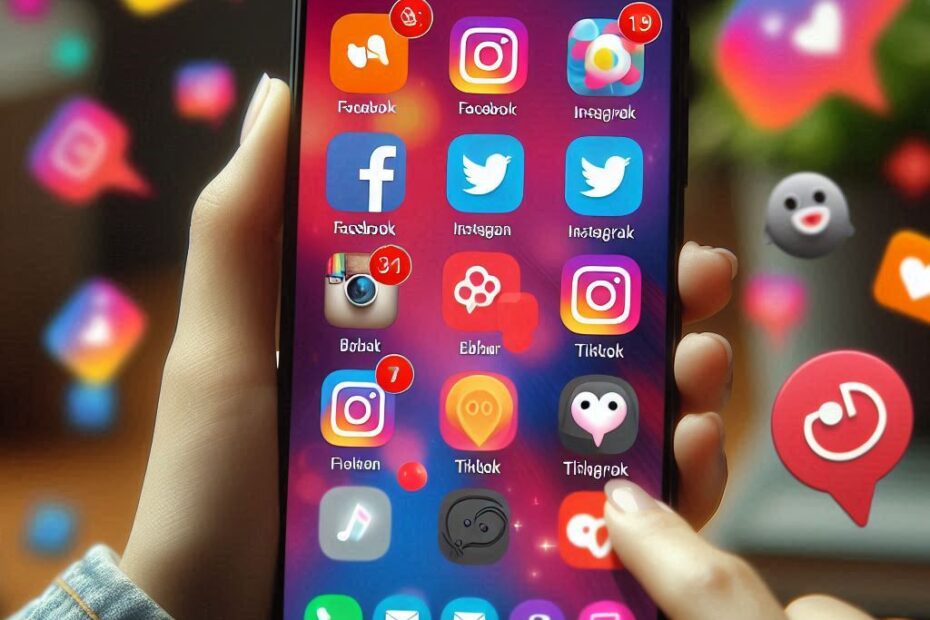Korean internet slang, often referred to as SNS words (short for Social Networking Service words), is a fascinating aspect of the language that reflects the unique culture and communication style of Korea. These slang terms are widely used in online interactions, social media, and even casual conversations among younger generations. Understanding these terms can enhance your ability to engage with Korean content and connect more deeply with Korean speakers. In this article, we’ll explore some common SNS words, their meanings, and how to use them.
What are SNS Words?
SNS words are shorthand, abbreviations, or specific terms used frequently on social media platforms like Twitter, Instagram, and KakaoTalk in Korea. They are often born out of convenience, creativity, or cultural trends, and they evolve quickly as new expressions emerge and old ones fade away. For anyone interested in Korean language and culture, knowing these terms is essential for understanding the nuances of online communication in Korea.
Common SNS Words and Their Meanings

1. ㅋㅋ (keke or haha)
One of the most commonly used SNS words is ㅋㅋ (keke or haha), which is equivalent to “lol” or “haha” in English. It is used to express laughter or amusement. The more ㅋ’s used, the stronger the laughter. For example, ㅋㅋㅋ could be seen as a chuckle, while ㅋㅋㅋㅋ could be interpreted as uncontrollable laughter.
Example:
친구: 오늘 날씨 진짜 좋다! (The weather is really nice today!)
나: ㅋㅋ 맞아, 산책 가자! (Haha, right, let’s go for a walk!)
2. ㅠㅠ (huhu or heh)
ㅠㅠ (huhu or heh) is an emoticon used to express sadness, sympathy, or disappointment. The characters represent tears, making it a quick and easy way to show that you are upset or feeling down.
Example:
친구: 나 시험 떨어졌어. (I failed the exam.)
나: ㅠㅠ 어떡해… 다음에 잘할 거야! (Huhu, what should we do… You’ll do better next time!)
3. ㄴㄴ (nono)
ㄴㄴ (nono) is a shorthand for “no” or “nope.” It is often used to quickly decline an offer or reject an idea. It’s a casual and informal way to say “no,” making it suitable for conversations with friends.
Example:
친구: 내일 저녁 같이 먹을래? (Do you want to have dinner together tomorrow?)
나: ㄴㄴ, 나 바빠. (Nope, I’m busy.)
4. ㅊㅋ (chukha or congrats)
ㅊㅋ (chukha) is short for 축하해 (chukha-hae), meaning “congratulations” in Korean. It’s commonly used to celebrate someone’s achievements, special events, or good news. This abbreviation is often seen in online comments or messages when someone wants to express their happiness for another person.
Example:
친구: 나 오늘 승진했어! (I got promoted today!)
나: ㅊㅋㅊㅋ! (Congrats, congrats!)
5. ㅇㅇ (eung)
ㅇㅇ (eung) is a casual way to say “yes” or “yeah.” It’s often used in text messages or chat conversations to agree or affirm something. This expression is very informal and is typically used between close friends or peers.
Example:
친구: 내일 영화 볼래? (Do you want to watch a movie tomorrow?)
나: ㅇㅇ, 좋아! (Yeah, sounds good!)
6.ㄷㄷ (deud deud)
ㄷㄷ (deud deud) expresses shock, awe, or amazement. It can also imply fear or being overwhelmed, depending on the context. It’s similar to saying “wow” or “OMG” in English.
Example:
친구: 저 사람 진짜 유명한 배우야! (That person is a really famous actor!)
나: ㄷㄷ 정말? (OMG, really?)
7. ㅎㅇ (hi)
ㅎㅇ (hi) is a shortened version of “하이” (hai), which means “hi” or “hello.” This is a very casual greeting often used in online chats or text messages between friends.
Example:
친구: ㅎㅇ, 잘 지냈어? (Hi, how have you been?)
나: ㅎㅇ, 나 잘 지냈어! (Hi, I’ve been doing well!)
8. ㅇㅋ (ok)
ㅇㅋ (ok) is the Korean equivalent of “OK” in English. It’s a simple and easy way to agree to something or show that you understand.
Example:
친구: 저녁 7시에 만나자. (Let’s meet at 7 PM.)
나: ㅇㅋ, 알겠어. (OK, got it.)
10. ㅂㅂ (bye bye)
ㅂㅂ (bye bye) is an abbreviation of “바이바이” (baibai), meaning “bye-bye” in English. It’s a casual way to say goodbye in online chats.
Example:
친구: 이제 가야 해. (I have to go now.)
나: ㅂㅂ, 내일 봐! (Bye bye, see you tomorrow!)
The Cultural Context of SNS Words
Understanding the cultural context behind SNS words is crucial to using them appropriately. These expressions often reflect the casual, playful, and fast-paced nature of online communication in Korea. They allow for quick exchanges and are often used to build rapport and camaraderie among peers.
The Role of Context in Using SNS Words
It’s important to note that while SNS words are widely used, they are also highly contextual. Their meanings can change depending on the situation, the relationship between the speakers, and even the tone of the conversation. For example, ㅋㅋ can be used sarcastically, and ㄴㄴ might come off as blunt or rude if used in a formal context.
Evolution and Trends
SNS words are constantly evolving. New terms are created, and older ones may fall out of favor as trends shift. For example, ㅎㅇ (hi) and ㅂㅂ (bye bye) might be replaced with new abbreviations or emoticons as younger generations come up with fresh ways to express themselves. This dynamic nature makes SNS words a vibrant and exciting part of the Korean language.
How to Learn and Use SNS Words
To effectively learn and use SNS words, it’s helpful to immerse yourself in Korean online communities, such as forums, social media platforms, and messaging apps. Observing how native speakers use these terms in different contexts can give you a better sense of their meanings and appropriate usage. Engaging with Korean friends or language exchange partners can also provide valuable practice and feedback.
Conclusion
Korean SNS words are more than just shorthand or slang; they are a reflection of the culture and social dynamics of Korea. By learning and using these terms, you can not only enhance your language skills but also gain a deeper understanding of Korean society and the way people connect in the digital age.
Whether you’re a language learner, a K-pop fan, or simply curious about Korean culture, mastering these SNS words will open up new avenues for communication and make your online interactions more authentic and engaging. So next time you’re chatting with a Korean friend, don’t forget to throw in a ㅋㅋ or ㅊㅋ to show you’re in the know!
Learn more click this!
Go to other topics
